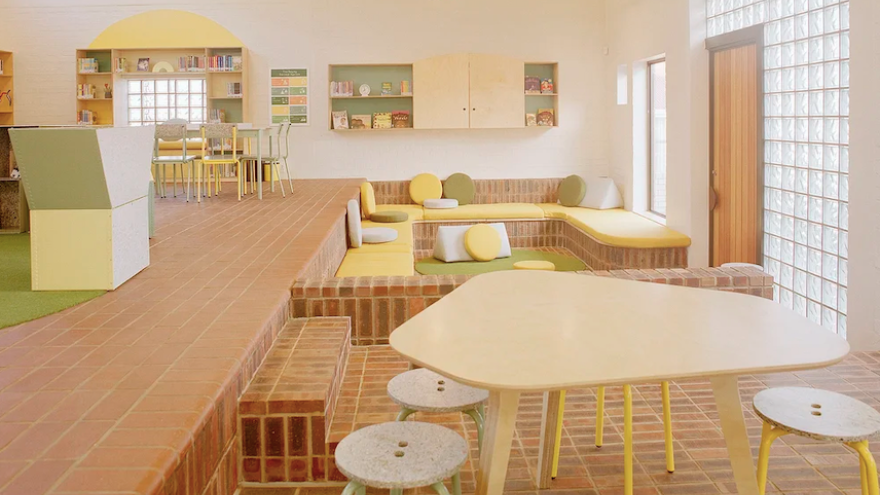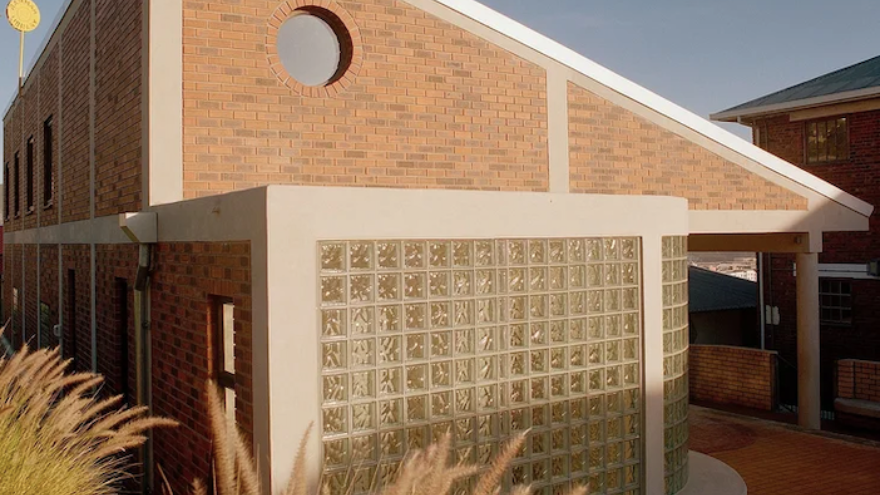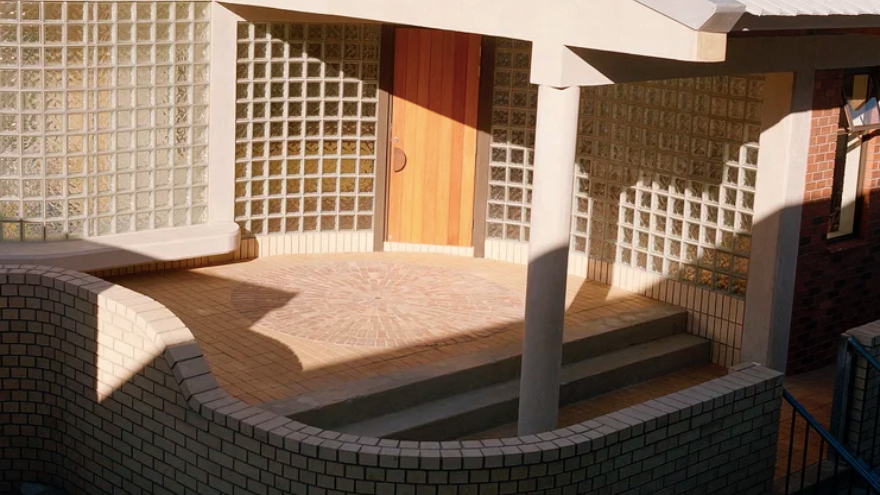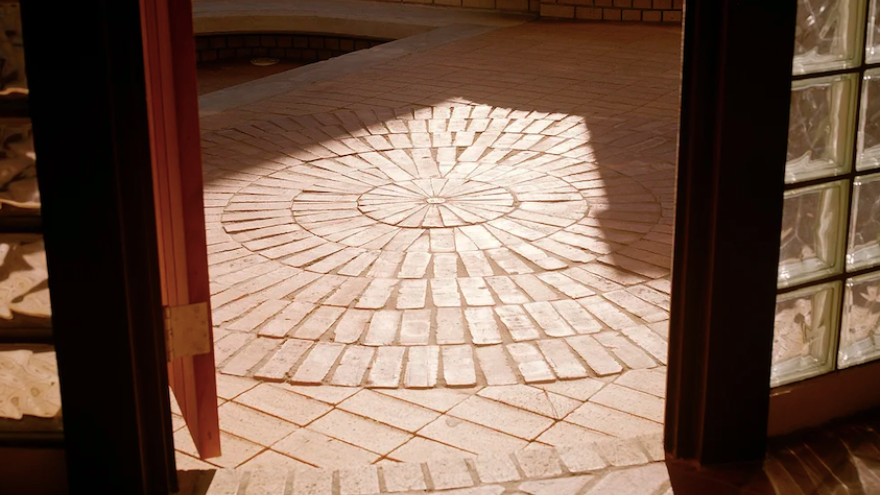Located in District Six in Cape Town, the Rahmah Library at Rahmaniyeh Primary School is a modest 215 m² building designed with collaboration, context and care. The library is conceived to “foster joy, literacy and belonging,” transforming an underused corner of the school into a bright, welcoming space for reading, imagination, and play.A bold yellow roof sign rises over the skyline, modest, yet visible across distance—as a symbolic claim for presence and visibility in a historically politically-challenged landscape.
The design stitches the library into daily school life through built-in benches, amphitheatre-style stairs, shaded outdoor corners, and even a water point—spaces not just for reading, but for gathering and learning together. The architecture is deeply responsive: a mono-pitched roof orients views southward to the mountains, while a curving glass block wall frames a sun-washed play zone to the east. The interior includes intimate reading pits, conversation alcoves, classroom zones, and sociable nooks.
Critical to its spirit is co-creation. Working with child-centred designer Xanelé Mennen and students, The MAAK facilitated workshops in which learners became co-authors of the design. One standout result is the ‘Rahmah-Rama’ bookshelf—imagined by the students and realized by local furniture designers Pedersen and Lennard..
History and hope are woven together in the details. Artist Zayaan Khan embedded clay—some of it reclaimed from the shattered homes of District Six—into door pushplates, decorative tiles, and the evocative “District Six Bricks” that anchor the floors and outdoor thresholds. These tactile reminders ground the library in a multi-layered past while opening its doors to future possibilities.
Rahmah Library is more than a building; it’s a sanctuary, a living memory, and proof that even within constraints, architecture can nurture both belonging and transformation. As Dr Frouwien Bosman, CEO of the Otto Foundation, observes: “Reading for enjoyment can offset or balance the effect of poverty on literacy development. Making books available to children through school libraries and programmes to promote reading for joy are therefore social justice initiatives — acting as equalisers in education”.







